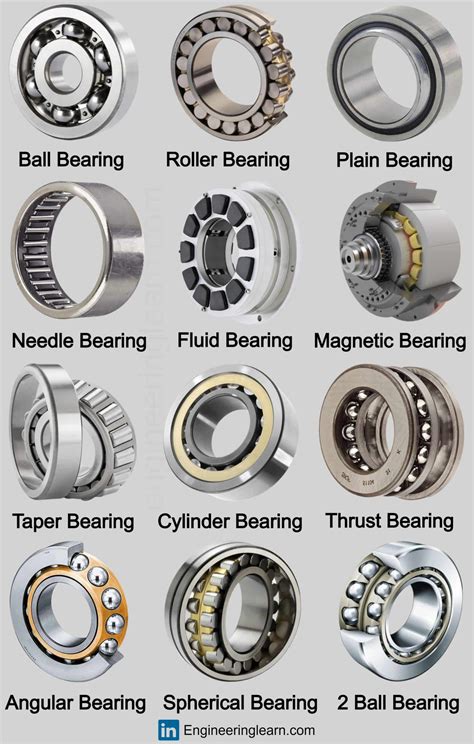The Pillars of Progress: Bearings
Bearings are the unsung heroes of our modern world. They are the silent workhorses that keep our machines running smoothly and our lives moving forward.
1. The Importance of Bearings in Industry
Bearings are essential components in various industries, including manufacturing, transportation, and energy. They reduce friction, increase efficiency, and extend the lifespan of machinery. According to the American Bearing Manufacturers Association (ABMA), the global bearing market is projected to reach $187.8 billion by 2028.

2. Types of Bearings and Their Applications
There are numerous types of bearings, each designed for specific applications. Some common types include:
-
Ball bearings: Used in low-load applications, such as skateboards and ceiling fans.
-
Roller bearings: Handle heavier loads and are found in automotive and industrial machinery.
-
Linear bearings: Allow for smooth linear motion, often used in robotic and automation systems.
3. Selecting the Right Bearing for Your Needs
Choosing the right bearing depends on factors such as load capacity, speed, and operating environment. It's crucial to consult with bearing manufacturers or engineers to determine the optimal solution.
4. Proper Installation and Maintenance of Bearings
Proper installation and maintenance are essential to ensure bearings function effectively and last long. This includes using the correct tools, following manufacturer guidelines, and regularly lubricating and inspecting the bearings.

5. The Impact of Bearings on Energy Efficiency
Efficient bearings can significantly reduce energy consumption. Studies by the U.S. Department of Energy have shown that replacing worn or inefficient bearings can save up to 10% in energy costs.
6. The Role of Bearings in Sustainable Development
Bearings contribute to sustainable development by reducing energy consumption, extending equipment lifespan, and minimizing waste. They enable industries to operate more sustainably and reduce their environmental impact.

7. Careers in the Bearing Industry
The bearing industry offers rewarding careers for professionals with expertise in mechanical engineering, manufacturing, and quality control. Positions include research and development, engineering design, and production management.
8. Inspiring Stories about Bearings
- A farmer used a bearing to repair a broken windmill, which kept his livestock watered during a drought.
- Engineers designed a new type of bearing for a spacecraft, allowing it to withstand the extreme temperatures of space.
- A construction team used specialty bearings in a skyscraper to withstand high winds, ensuring the safety of occupants.
These stories highlight the profound impact bearings have on our lives and the ingenuity of those who work in the industry.
9. Potential Drawbacks of Bearings
While bearings are essential components, they can have some drawbacks:
-
Cost: Precision bearings can be expensive, especially for high-load applications.
-
Complexity: Designing and maintaining complex bearing systems requires specialized knowledge.
-
Failure risks: If bearings fail, they can lead to costly downtime and safety hazards.
10. Conclusion
Bearings are the unsung heroes of our modern world. They enable countless machines to operate smoothly and efficiently, contributing to industrial productivity, technological advancement, and sustainable development. By understanding the types, applications, and importance of bearings, we can harness their power to drive progress and improve our lives.
Tables
-
Table 1: Types of Bearings and Their Applications
-
Table 2: Global Bearing Market Size and Projections
-
Table 3: Drawbacks and Considerations for Bearings
Step-by-Step Approach
-
Identify bearing needs: Determine the load capacity, speed, and operating environment.
-
Research bearing types: Consider ball bearings, roller bearings, and linear bearings.
-
Select appropriate bearing: Consult with manufacturers or engineers for recommendations.
-
Properly install bearing: Use correct tools and follow manufacturer guidelines.
-
Regularly inspect and lubricate bearing: Ensure optimal performance and extend lifespan.
Call to Action
Embrace the role of bearings in your industry or personal projects. By understanding their importance and choosing the right ones, you can unlock efficiency, innovation, and sustainable progress.
